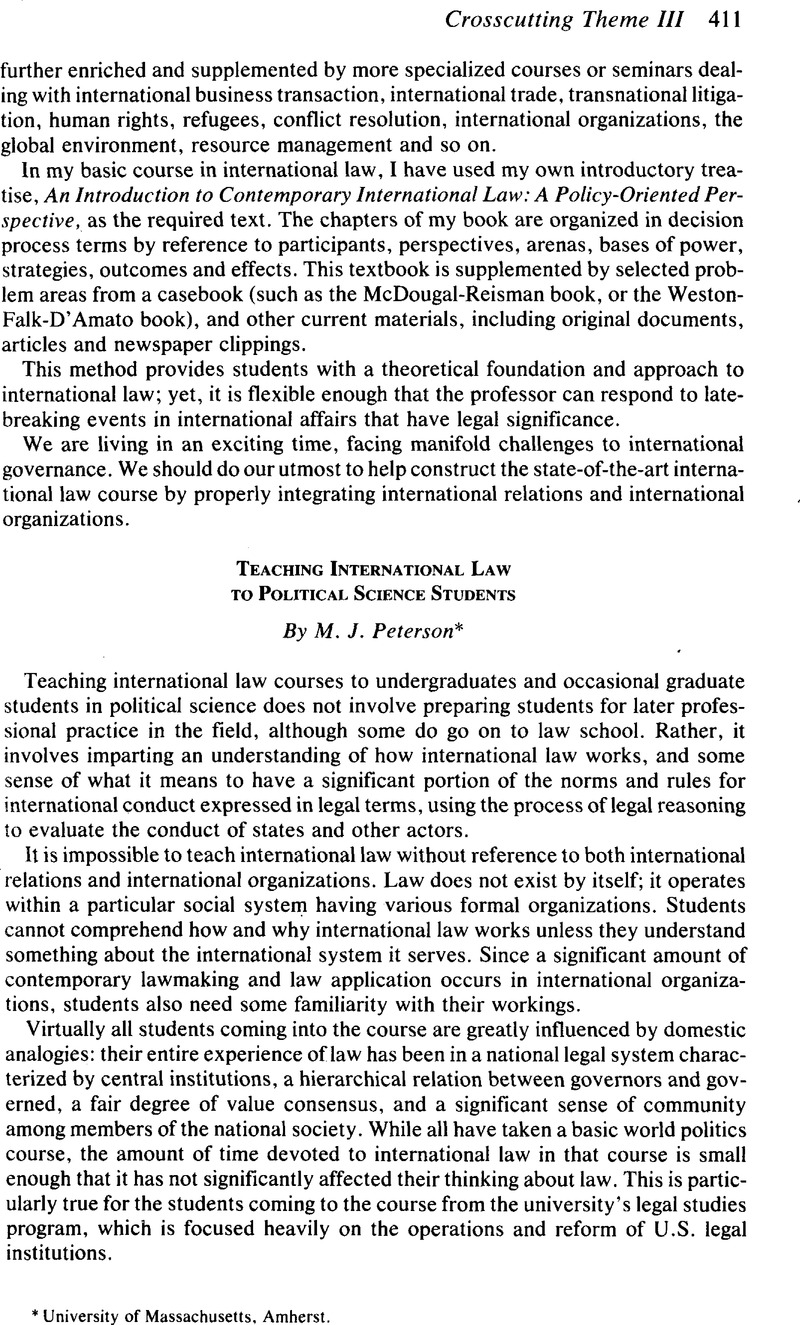No CrossRef data available.
Article contents
Teaching International Law to Political Science Students
Published online by Cambridge University Press: 28 February 2017
Abstract

- Type
- Teaching International Relations and International Organizations in International Law Courses: Constructing the State-of-the-Art International Law Course
- Information
- Copyright
- Copyright © American Society of International Law 1993
References
1 “Liberal” here follows the definition of Anne-Marie Slaughter Burley in Law and the Liberal Paradigm in International Relations Theory, 86 Asil Proc. 180 (1992).
2 A term denoting a society of states, not a global society of individuals. Leading expositions include Bull, Hedley, The Anarchical Society (1977)CrossRefGoogle Scholar; Bull, Hedley & Watson, Adam (Eds.), The Expansion of International Society (1984)Google Scholar; Mayall, James, Nationalism and International Society (1990)CrossRefGoogle Scholar.
3 See, e.g., Nardin, Terry, Law, Morality, and the Relations of States (1983)Google Scholar; Kratochwil, Friedrich, Rules, Norms, and Decisions: On the Conditions of Legal Reasoning in International Relations and Domestic Affairs (1989)CrossRefGoogle Scholar; Onuf, Nicholas, World of our Making (1989)Google Scholar.
4 See, e.g., Keohane, Robert O., After Hegemony: Co-Operation and Discord in the World Political Economy (1984)Google Scholar; Oye, Kenneth A. (Ed.) Cooperation Under Anarchy (1986)Google Scholar; Young, Oran R., International Cooperation: Building Regimes for Natural Resources and the Environment (1989)Google Scholar; Haas, Peter M., Keohane, Robert O., and Levy, Marc A. (Eds.) Institutions for the Earth: Sources of Effective International Environmental Protection (1993)Google Scholar. The journal International Organization publishes many article-length studies of international regimes.
5 Krasner, Stephen D., Structural Causes and Regime Consequences: Regimes as Intervening Variables, 36 Intl Org. 186 (1982)Google Scholar.
6 A term used in game theory and collective-choice literature to denote situations in which the outcome cannot be determined by any one participant but depends on the aggregate of choices made by participants acting individually though aware of their enmeshment in a common situation.
7 See remarks of Kenneth Abbott, proposing a joint discipline, and of Oran Young, pointing out the obstacles, in panel on International Law and International Relations Theory: Building Bridges, 86 Asil Proc. 167(1992).


